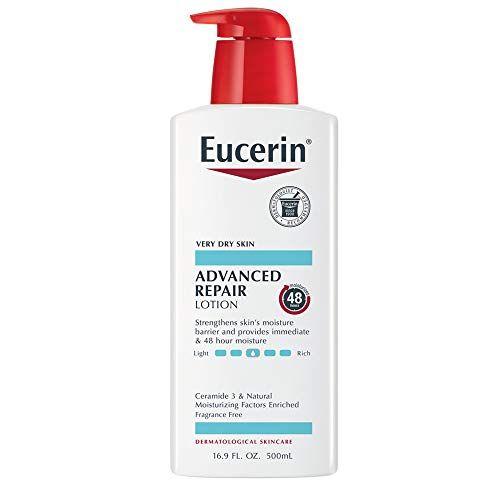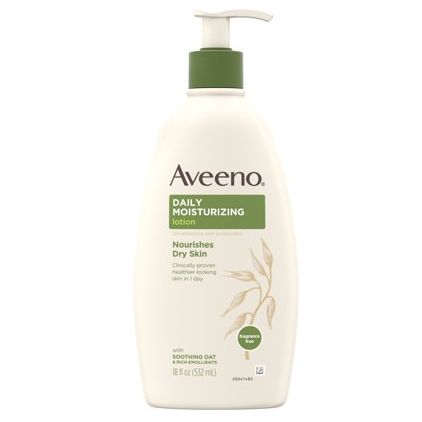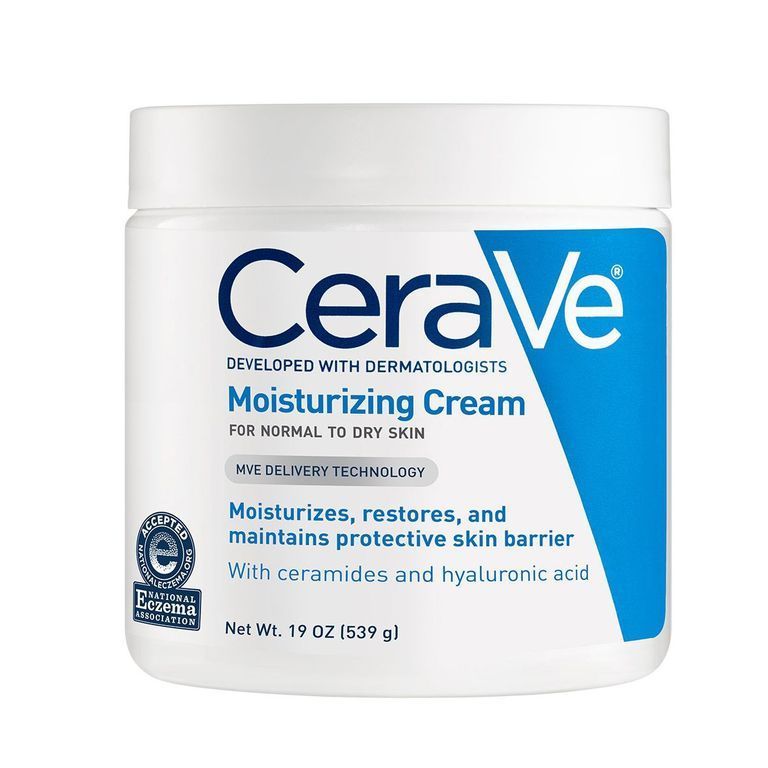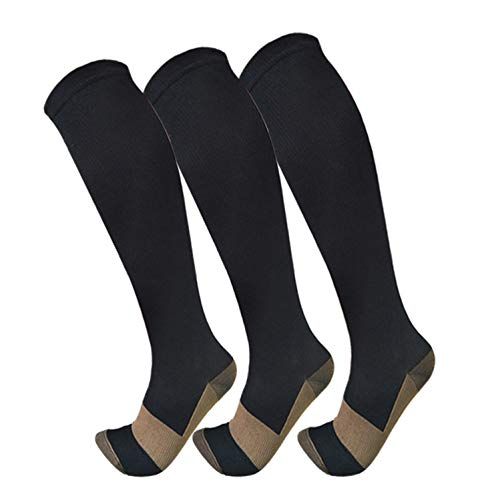Itchy Legs: Causes, Treatment - Prevention Magazine
Itchy legs can be uniquely annoying, especially in the cold and dry winter months. And while it's perfect weather for wearing long pants or tights, you might further trigger a need to scratch your itch (especially if the fabric itself is itch-inducing). Plus, you might have a harder time reaching said itch in the first place if the source of your stress is focused more on your calves or around your ankles.
While your itchy legs may have you itching for a cure, you need to determine why your legs are bothersome before you can treat the condition. And frustratingly, it can take a dermatologist a while to ID the source of itchy legs as any number of underlying conditions could be to blame, says Alix J. Charles, M.D., a board-certified dermatologist and fellow of the American Academy of Dermatology (AAD).
Meet the Experts: Brendan Camp, M.D., board-certified dermatologist at MDCS Dermatology; Alix J. Charles, M.D., a board-certified dermatologist and fellow of the American Academy of Dermatology (AAD); Meghan Feely, M.D., a board-certified dermatologist in New Jersey and New York City and clinical instructor at Mount Sinai's Department of Dermatology; Marisa Garshick, M.D., board-certified dermatologist at MDCS Dermatology; Melissa Kanchanapoomi Levin, M.D., a Manhattan-based board-certified dermatologist and founder of Entière Dermatology; Lauren Penzi, M.D., board-certified dermatologist at MDCS Dermatology.
Fortunately, there are some common reasons your legs specifically feel unbearably itchy, and we're to help you pinpoint the source of your scratchy urges. Read on to learn more about why you have itchy legs and how to get sweet relief, with expert advice from dermatologists.
Causes of itchy legs
1. Dry skin
By far, the single most common reason for itchy legs (and itchy skin in general!) is dry skin, says Dr. Charles. While you might not think of your legs as part of your body that you over-soap, lathering up can suck natural oils from your skin. And if you tend to reserve moisturizer for your face and cream for your hands, you could be leaving your legs dry, scaly, and itchy.
Sound familiar? Take it easy on the soap, bubble baths, and super-long showers (hot water can dry your skin out even more), and moisturize with a hydrating body lotion. Look for a product with hydrating and soothing ingredients, like ceramides, hyaluronic acid, colloidal oatmeal, and urea.
The following derm-approved picks fit the bill:
2. Bug bites
Bugs (ticks, fleas, mosquitoes, spiders, and mites like chiggers) often reach the body by first crawling or leaping up your legs. Usually, their bites can trigger an itch fest around your ankles or up your calves and shins, says Dr. Charles, along with possible redness, swelling, and even mild pain.
If you think bug bites are to blame, soothe your skin with a topical steroid, such as Cortizone-10, and over-the-counter antihistamine like Benadryl, says Melissa Kanchanapoomi Levin, M.D., a Manhattan-based board-certified dermatologist and founder of Entière Dermatology.
3. Hives
As scary as a fiery flush of red up your legs can seem, 1 in 5 people will get hives (aka urticaria) at some point in their lives, according to the American College of Allergy, Asthma & Immunology. Hives are raised bumps (aka welts) that may resemble swollen bug bites. They can change shape, move to various locations on the body, or disappear and show up again in a short amount of time—and they often itch like crazy.
There are a ton of potential causes, ranging from excess stress or allergic reactions to an underlying infection or systemic illness, says Dr. Kanchanapoomi Levin, who notes that OTC antihistamines like Allegra or Zyrtec can soothe hive-related itch.
⚠️ If your hives are impossible to ignore, spreading across your body, or you're having other symptoms (like shortness of breath), head for the ER or call 911. It could be a sign of a severe allergic reaction.
4. Poison ivy
Wade into tall grasses or just finish gardening? If you've got itchy lower legs plus a red rash, you might have brushed up against the wrong plant (a general rule: leaves of three, leave them be). While the most common offender is poison ivy, many other greens can trigger itch, including some you may have planted yourself, like tomato and hot pepper plants, per the AAD.
Try OTC anti-itch meds like calamine lotion for relief. If they don't help, head to the derm—you might need something stronger, says Dr. Charles.
5. Swimmer's itch
Too much chlorine plus sunshine alike can trigger a must-scratch itch that's even worse if your legs are already dried out (so moisturize!), says Meghan Feely, M.D., a board-certified dermatologist in New Jersey and New York City and clinical instructor at Mount Sinai's Department of Dermatology.
But if you recently took a dip in a lake, river, or the ocean? Parasites that usually strike waterbirds or those jellies you swam too close to could be to blame, even causing hives, pimple-like bumps, and blisters.
What to do if you know if your dip in the water (aka swimmer's itch) might be to blame: Zap the itch with OTC antihistamines and anti-itch creams. If you're still scratching in three days, call your doctor.
6. Chronic skin conditions like psoriasis or eczema
Chronic skin conditions, like psoriasis and eczema, can pop up as itchy, red lesions or patches on your legs and all over your body. While they have the potential to look similar, the two are very different.
Psoriasis is actually an autoimmune condition, meaning your immune system causes skin cells to grow faster than your body can shed them. Unlike eczema, the most common form of psoriasis can cause raised plaques that are covered by silvery-white scales. Eczema, on the other hand, is typically caused by external allergens or irritants. Both can feel super itchy, but psoriasis may also cause a burning sensation.
As there are multiple types of each, you're best off making an appointment with a dermatologist to ID yours and find the proper treatment for your psoriasis or for your eczema, which can include prescription creams, oral or injectable medications, and phototherapy (which uses UV rays to soothe itchy spots of skin), says Dr. Kanchanapoomi Levin.
7. Poor circulation
If your lower legs are swelling and itchy, you might have a form of eczema called stasis dermatitis, which is caused by poor circulation, says Dr. Feely. A doctor can help you identify the underlying cause, which may include high blood pressure, varicose veins, or a systemic condition, per the AAD. Leg elevation, compression socks, topical corticosteroids, and potentially even surgery can also help ease your itching, says Dr. Feely.
8. Diabetes
A persistent itch without a rash can *sometimes* come from a bigger health condition such as diabetes, says Dr. Kanchanapoomi Levin. While high blood sugar can make your skin dry and itchy all over, poor circulation (another complication of diabetes) can bring about itchy lower legs in particular, per the American Diabetes Association. If you're worried, reach out to your doctor to make sure your diabetes is in check.
9. Nerve damage
Neuropathic itch (itching caused by nerve damage) is far rarer than, say, day-to-day dry skin, says Dr. Charles. However, if you've recently injured your back, pinched a nerve, or had shingles, your tweaked nerves could be causing itching that's confined to one area of your body, like your lower legs. If self-care like anti-itch meds just aren't cutting it, call your doctor.
10. Folliculitis
Some people may experience itch in the setting of inflamed hair follicles as in folliculitis, says Marisa Garshick, M.D., board-certified dermatologist at MDCS Dermatology. Folliculitis is often caused by an infection with bacteria. At first, it may look like small pimples around the tiny pockets from where each hair grows (hair follicles), per Mayo Clinic. The condition can be itchy and sore—and the infection can spread and turn into crusty sores.
Folliculitis may be more common among those with acne. Shaving and use of topical steroid creams can also increase the risk of developing this condition. Mild cases usually heal without scarring in a few days on their own. For more serious infections, antibiotics or other drugs may be needed.
How to treat itchy legs
The best way to treat itchy legs is with gentle skin care, says Brendan Camp, M.D., board-certified dermatologist at MDCS Dermatology. "Limit showers to no more than 10 minutes, use a mild cleanser, and apply a lotion or cream while the skin is still damp to lock in moisture." Consider also using an over-the-counter product with menthol, camphor, or pramoxine in it to help with itch symptoms, says Dr. Camp. If the itch does not improve after a few days or worsens, schedule an appointment with a board-certified dermatologist for evaluation and treatment.
Home remedies for itchy legs
There are also some home remedies you can try to soothe your itchy legs. Per Lauren Penzi, M.D., board-certified dermatologist at MDCS Dermatology, here are a few things you can try on your own:
How to prevent itchy legs
The prevention of itchy legs ultimately depends on what is causing your itch. With that being said, Dr. Penzi recommends the following tips for keeping the scratching at bay.
- Take short, lukewarm showers
- Use a gentle soap with no fragrance
- Apply a moisturizer to your entire body while your skin is still damp
- Choose either an ointment or a true anti-itch cream and avoid lotions (often found in bottles with pumps), as these have higher water content and are not as effective for hydrating the skin
- When shaving, use a shaving gel or cream with hydrating ingredients like aloe vera, shea butter, or glycerin
- Be sure to use a clean, sharp razor, and always shave in the direction of hair growth
- Avoid irritating fabrics and stick with those that are most suitable for sensitive skin such as cotton, silk, linen, etc.
When to see a doctor for itchy legs
If the itching is impacting quality of life, waking you up in the middle of the night or just not responding to at-home remedies, it is important to see a doctor for further evaluation, says Dr. Garshick. Dr. Camp adds that you should not hesitate in consulting with a dermatologist regarding treatment, "as repetitive scratching can cause other skin conditions, like infections, discoloration, and scarring."

Cassie Shortsleeve is a skilled freelance journalist with more than a decade of experience reporting for some of the nation's largest print and digital publications, including Women's Health, Parents, What to Expect, The Washington Post, and others. She is also the founder of the digital motherhood support platform Dear Sunday Motherhood and a co-founder of the newsletter Two Truths Motherhood and the maternal rights non-profit Chamber of Mothers. She is a mom to three daughters and lives in the Boston suburbs.
Madeleine, Prevention's assistant editor, has a history with health writing from her experience as an editorial assistant at WebMD, and from her personal research at university. She graduated from the University of Michigan with a degree in biopsychology, cognition, and neuroscience—and she helps strategize for success across Prevention's social media platforms.






Comments
Post a Comment